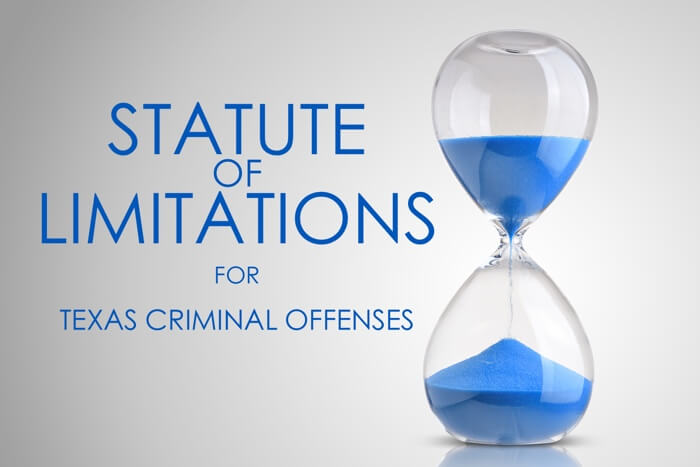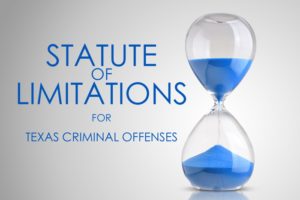 I usually do not repost articles that others writers send to my email, but I decided to make an exception for this one. Reposted below is a compelling article written by Michael Hall with Texas Monthly, regarding the current plight of Kerry Max Cook, a man who hopes to obtain a complete exoneration for a murder that he did not commit (as later demonstrated by DNA evidence). You can either read the story below, or see the original article HERE. You can also check out an updated Article by Michael Hall HERE.
I usually do not repost articles that others writers send to my email, but I decided to make an exception for this one. Reposted below is a compelling article written by Michael Hall with Texas Monthly, regarding the current plight of Kerry Max Cook, a man who hopes to obtain a complete exoneration for a murder that he did not commit (as later demonstrated by DNA evidence). You can either read the story below, or see the original article HERE. You can also check out an updated Article by Michael Hall HERE.
>>>>>>>>>>>>
Kerry Max Cook walked off Texas’s death row in 1997, but earlier this week he filed two motions in the 241st District Court in Smith County that he hopes will finally clear his name. Cook (pictured above) and his Dallas lawyers, working with the New York-based Innocence Project, petitioned for post-conviction DNA testing on untested evidence he is certain will show once and for all that he is innocent of killing Linda Jo Edwards in Tyler in 1977. He also asked to have the DNA motion considered by a judge from outside Smith County, where he claims he was a victim of “the most well-documented and notorious instance of prosecutorial misconduct in the annals of Texas jurisprudence.”
Now would seem to be a good time to file these motions. Since 2000, four dozen Texans have been exonerated, most by DNA evidence. Recently we’ve seen several high-profile cases in which men sent to prison—including death row—were exonerated and freed, to great fanfare. Timothy Cole, convicted of rape in Lubbock in 1985, was exonerated posthumously in 2009 after a court of inquiry found him innocent. Anthony Graves, a former death row inmate, was freed in 2010 after a special prosecutor found his trial prosecutor had “handled this case in a way that would best be described as a criminal justice system’s nightmare.” Michael Morton, convicted of killing his wife in 1987, was freed in October after tests revealed his wife’s blood and another man’s DNA on a bandana near the crime scene.
Cook was released when these other men were still in prison. Any yet, unlike them, he is not legally an exoneree. That’s because, even though his death sentence was overturned twice by higher courts, and even though DNA taken from the murder victim didn’t match him, when prosecutors were preparing to put him on trial for a fourth time, Cook pleaded no contest instead of not guilty. Thirteen years later, his murder conviction is still on his record.
Why did Cook plead no contest to a murder he didn’t commit? Good question. Cook’s case is a strange one, one of the strangest in Texas history. He was arrested in June 1977 for the rape and murder of Linda Jo Edwards, who had been stabbed, beaten, and mutilated in her apartment. Her roommate told of seeing a man at the apartment whom she assumed was James Mayfield, a married man with whom Edwards had been having an affair. But the affair had ended three weeks before the murder. Police instead zeroed in on Kerry Max Cook, who lived in the same complex and whose fingerprints were found on a patio door of the apartment. Cook said he was innocent.
The prosecution made a strong case at Cook’s first trial in 1978. A police detective testified that his fingerprints could actually be dated as having been left there within hours of the murder. The roommate who originally thought the killer was Mayfield now said it was Cook. A jailhouse snitch said Cook confessed to him that he’d killed Edwards. And a gay hairdresser named Robert Hoehn said that on the night of the murder he and Cook had watched the movie The Sailor Who Fell From Grace With the Sea; Hoehn said he had performed sex acts on Cook, who also had masturbated during a scene involving the torture of a cat. The prosecution’s theory was that Cook, aroused by the torture scene, had rushed out to rape, kill, and mutilate Edwards, a total stranger. Cook, who says he knew Edwards and had visited her apartment by invitation (thus accounting for the prints), was found guilty, convicted, given the death penalty, and sent to death row.
Ten years later, stories in the Dallas Morning News began alleging serious improprieties at the original trial. For example, the snitch admitted that he had lied as part of a deal with prosecutors (his pending murder charge was reduced to involuntary manslaughter in exchange for his testimony), and the detective’s testimony about being able to tell the age of fingerprints was shown to be highly misleading, if not downright absurd. In 1991 Cook’s sentence was overturned on a technicality and sent back to the trial court.
By this point, the state’s case was in the hands of a tough prosecutor named Jack Skeen, who had been elected Smith County DA in 1983. Cook had found his own advocate in Jim McCloskey of Centurion Ministries, a New Jersey group that helps the wrongly convicted. Centurion did some research and found four dozen people who knew Mayfield, the man Edwards had been having an affair with; none had ever been interviewed by police. McCloskey became convinced of Cook’s innocence and wrote a report titled “Why Centurion Ministries Believes Jim Mayfield Killed Linda Jo Edwards.”
Cook’s second trial was moved to Williamson County in 1992, but it ended in a hung jury and a mistrial. By this point other evidence that suggested prosecutorial misconduct had been revealed—the state hadn’t turned over evidence that Mayfield’s teenaged daughter had repeatedly threatened to kill Edwards in the weeks before her death. The state also withheld evidence that Cook and Edwards did indeed know each other and that Hoehn had originally told the grand jury that he had not had sex with Cook (who, he had also said, didn’t pay any attention to the movie). Finally, the state hadn’t revealed a written statement from the detective who had testified about the age of the fingerprint in which he said he had told prosecutors this opinion was unsound and couldn’t be backed up by any science. Still, he stated, prosecutors pressed him to give it, and he did, to devastating effect.
At trial number three, in 1994, even without the testimony of the snitch or the detective regarding the age of the fingerprints, the state was allowed to use the testimony of Hoehn, who had recently died. Cook was again found guilty and again given the death penalty.
In 1996 Cook finally got his first vindication. The Texas Court of Criminal Appeals reversed the latest conviction, pointing to the massive official misconduct. “Prosecutorial and police misconduct has tainted this entire matter from the outset,” the majority opinion declared. Cook made bail in 1997, but the state prepared to try him again. Skeen, who was elected Prosecutor of the Year by the State Bar of Texas, remained convinced of Cook’s guilt.
In an attempt to head off a fourth trial, Skeen’s office offered Cook a deal: plead guilty, be sentenced to time served, and go home. Cook refused. He was innocent, he swore. In early 1999, Edward’s underwear was sent to a DPS lab for modern forensic testing. On February 5, the lab confirmed the presence of semen. Six days later a hopeful Cook gave a blood sample. The next day, before the results of the DNA test came back, the DA’s office made another offer: a no contest plea, in which he would maintain his innocence while acknowledging that witnesses against him “would testify sufficiently to prove beyond a reasonable doubt” that he’d killed Edwards. Again Cook refused. On February 16, the DA came back with a final offer: a no-contest plea in which Cook would maintain his innocence while only acknowledging the evidence the state would offer to try and convict him. Cook took the deal. He didn’t want to run the risk of another trial, another guilty verdict, and another death sentence in law-and-order Smith County.
Two months later, the test results came back: the semen belonged to Mayfield—who had given a blood sample a month after the plea deal. Skeen’s office maintained that the results didn’t prove anything—after all, Mayfield had recently had a sexual relationship with Edwards, and who knew when that semen had been deposited there? Cook was still guilty. As Assistant DA David Dobbs said later, “The important thing for us was to insure that he got a conviction for murder that would follow him for the rest of his life.”
In 2003, Skeen became judge of the 241st District Court. One of Cook’s motions filed Tuesday specifically asks for his case to be tried by someone other than his former prosecutor. In this motion for recusal, Cook’s attorneys note new evidence that they say suggests Skeen failed to follow the law. In particular, in May 2011 Cook’s lawyers say they found a polygraph report on the jailhouse snitch that indicated deception during his 1977 questioning—a report that was never turned over to any of the defense lawyers, either in 1978 or 1994. Cook’s lawyers write, “the State was unquestionably obligated to provide this highly exculpatory document to the defense.”
The CCA, in its review, concluded that the improprieties in the case were confined to the original investigation, in the late 1970s. A footnote to its majority decision in 1996 reads: “We note the acts of misconduct … took place nearly 20 years ago and we do not imply any complicity in said acts on the part of the current District Attorney or current members of the Tyler Police Department.” But Judge Charlie Baird, in a separate opinion, disagreed, saying that he thought the misconduct went further: “the State’s misconduct in this case does not consist of an isolated incident or the doing of a police officer, but consists of the deliberate misconduct by members of the bar, representing the State, over a fourteen year period—from the initial discovery proceedings in 1977, through the first trial in 1978 and continuing with the concealment of the misconduct until 1992.” By that point, Skeen had been DA for nine years.
One of the more intriguing questions is whether Skeen knew the results of the DNA test before making the plea offer in 1999. In Chasing Justice, a book Cook wrote about his experience, he says that McCloskey suspected so. “I’ll tell you what I think,” Cook remembers McCloskey saying. “I think they ran a preliminary test on the semen stain and have at least got a blood type; they know you aren’t the donor.” In the DNA motion, Cook can only speculate on what happened:
Based on statements made by the District Attorney, what likely occurred between February 12 and February 16, 1999 is that an initial analysis was performed on Mr. Cook’s blood sample for purposes of comparison to the semen stain on Ms. Edwards’ clothing, which had only been provided the day before the prosecution’s offer to Mr. Cook of 40 years in prison. And in hindsight it is apparent that this initial analysis excluded Mr. Cook as the individual that raped and murdered Ms. Edwards. Just after Mr. Cook entered his no-contest plea, a local newspaper reported that, ‘[t]esting continues on a recently discovered semen stain on the dead woman’s underwear, said Skeen. But initial indications were that the new evidence would not prove helpful to prosecutors, he [Skeen] said.’ The prosecution knew that once a jury was informed that the semen from Ms. Edwards’ panties did not belong to Mr. Cook, the State would not be able to convict Mr. Cook of her rape and murder. Again, Mayfield did not submit his blood until after the plea agreement was entered, so when the prosecution made the deal with Mr. Cook they may not have known with scientific certainty who did rape and kill Ms. Edwards, but they absolutely knew who did not—Kerry Max Cook.
The intent of the DNA motion seems to be to start the ball rolling to get Cook eventually declared actually innocent. This is a tall order in Texas, especially this long after the verdict. The motion states:
Mr. Cook is factually and actually innocent of the 1977 rape and murder of Ms. Edwards and requests further DNA testing to verify and corroborate the other powerful evidence of his innocence. While previous DNA testing has already provided exculpatory evidence and established overwhelming proof of Mr. Cook’s innocence, there is a substantial volume of additional un-tested evidence that will further corroborate Mr. Cook’s innocence.
The motion is referring to things taken from the bloody crime scene that were never tested for DNA, including Edwards’ bloody blue jeans, a hair found on her body, and other biological samples taken from her bra and a knife.
One of the great mysteries of the case is why Mayfield, whose semen was found inside Linda Jo Edwards’ lifeless body, was never tried for her murder. If his DNA profile were to be found in the untested blood or hair, could Mayfield (who lives in Houston and has refused requests for interviews for 35 years now) ultimately be prosecuted? Could Cook be exonerated?
Cook’s case is a deeply tragic one. He was one of the first of the modern wave of men to be freed after years of wrongful imprisonment. And yet Cook never experienced a profound public vindication. He never got to raise his arms high as he was cheered leaving the courthouse—like Morton recently did. He doesn’t get millions of dollars in compensation from the state for those wasted years—like the others do. He doesn’t have a brotherhood of fellow exonerees—like the men in Dallas have. He isn’t even, technically, an exoneree.
“Every day I fight against the darkest depression imaginable,” he says, “because of what Smith County did to me and continued to do to me for 35 years. First there was the horror of my prison experience as an innocent man, then my fate when I was freed, which in some ways was almost as bad. I developed severe PTSD. I was forced to move five times by people who found out about my past. Kids won’t play with my son because they find out he’s the son of a man who was on death row. My wife and I–we have no insurance. I can’t get an apartment, I can’t get a real job. It’s been unbelievable. Nobody knows what it’s like. It’s like I’m behind another set of bars. I’m not free.
“I want the official exoneration. I want what Ernest Willis and Tim Cole and Michael Morton got. I deserve it. It’s my turn.”

 Texas law sets out the statute of limitations, the period during which formal charges must be brought against the defendant for most offenses. These time periods range from two years to over twenty years, and for some offenses there is no limitation period at all. The applicable limitation period depends on the particular offense that is alleged.
Texas law sets out the statute of limitations, the period during which formal charges must be brought against the defendant for most offenses. These time periods range from two years to over twenty years, and for some offenses there is no limitation period at all. The applicable limitation period depends on the particular offense that is alleged.

 Everyone knows (or should know) of the attorney-client privilege which prohibits the calling of an attorney to testify as a witness against his client and protects the attorney-client relationship. But what about the husband-wife relationship? Are spouses afforded any protection from having their spouse testify against them in a criminal trial?
Everyone knows (or should know) of the attorney-client privilege which prohibits the calling of an attorney to testify as a witness against his client and protects the attorney-client relationship. But what about the husband-wife relationship? Are spouses afforded any protection from having their spouse testify against them in a criminal trial?
 In the wake of the recent rise in gun violence, Apple made a big announcement last week that the
In the wake of the recent rise in gun violence, Apple made a big announcement last week that the 
 There are many consequences for persons arrested and charged with a crime in Texas. One of the often overlooked considerations is whether and to what extent a criminal accusation impacts one’s authorization to carry a weapon with a License to Carry (LTC), formerly a Concealed Handgun License (CHL). The reality of gun possession in today’s political climate is that the restrictions are many and increasing.
There are many consequences for persons arrested and charged with a crime in Texas. One of the often overlooked considerations is whether and to what extent a criminal accusation impacts one’s authorization to carry a weapon with a License to Carry (LTC), formerly a Concealed Handgun License (CHL). The reality of gun possession in today’s political climate is that the restrictions are many and increasing.
 Did Rougned Odor Assault Jose Bautista Under Texas Law?
Did Rougned Odor Assault Jose Bautista Under Texas Law?
 Most misdemeanor cases in Texas are charged by way of a document called an ”information.” An information does not have to be issued by a grand jury. The information can simply be prepared and reviewed by a District Attorney and then subsequently filed in a court with proper jurisdiction. Felony cases, on the other hand, must be indicted by a grand jury unless a defendant chooses to waive indictment and proceed without one.
Most misdemeanor cases in Texas are charged by way of a document called an ”information.” An information does not have to be issued by a grand jury. The information can simply be prepared and reviewed by a District Attorney and then subsequently filed in a court with proper jurisdiction. Felony cases, on the other hand, must be indicted by a grand jury unless a defendant chooses to waive indictment and proceed without one.
 In the age of social media it seems more and more that our identities are being fast tied to what we post, like, love, or retweet on social media. Our firm handles criminal cases on a daily basis and in the course of our work we’ve seen an increasing reliance by law enforcement and prosecutors on social media websites like Facebook, Twitter, and Instagram. More often than not, investigators are scrolling through the entirety of a person’s social media profiles scouring the information for incriminating statements, pictures or conversations. A Facebook picture or an Instagram post that one might consider innocent, humorous, or obscure could end up being a key piece of evidence used against that person in a court of law.
In the age of social media it seems more and more that our identities are being fast tied to what we post, like, love, or retweet on social media. Our firm handles criminal cases on a daily basis and in the course of our work we’ve seen an increasing reliance by law enforcement and prosecutors on social media websites like Facebook, Twitter, and Instagram. More often than not, investigators are scrolling through the entirety of a person’s social media profiles scouring the information for incriminating statements, pictures or conversations. A Facebook picture or an Instagram post that one might consider innocent, humorous, or obscure could end up being a key piece of evidence used against that person in a court of law.
 Of the various types of criminal cases we defend in Fort Worth, Texas,
Of the various types of criminal cases we defend in Fort Worth, Texas, 
 Yesterday, Texas Attorney General Ken Paxton issued an
Yesterday, Texas Attorney General Ken Paxton issued an 
 I usually do not repost articles that others writers send to my email, but I decided to make an exception for this one. Reposted below is a compelling article written by Michael Hall with Texas Monthly, regarding the current plight of Kerry Max Cook, a man who hopes to obtain a complete exoneration for a murder that he did not commit (as later demonstrated by DNA evidence). You can either read the story below, or see the original article
I usually do not repost articles that others writers send to my email, but I decided to make an exception for this one. Reposted below is a compelling article written by Michael Hall with Texas Monthly, regarding the current plight of Kerry Max Cook, a man who hopes to obtain a complete exoneration for a murder that he did not commit (as later demonstrated by DNA evidence). You can either read the story below, or see the original article 





